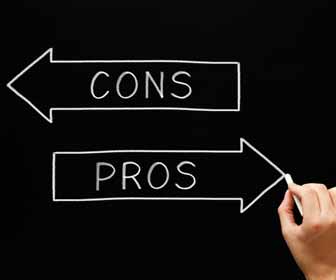Pluses And Minuses of Sports Jobs
What’s good about a Sports Jobs?
People who like sports love sports, and those who find themselves jobs in sports say they’re “thankful.” They feel “blessed.” The rewards can be great terms of money and benefits, but there are many other rewards that mean far more to these “lucky” people.
Having a job you love is important. If you don’t believe that, maybe you haven’t found the right job for you, yet. The men and women you’ll meet and the friendships you’ll make for life are priceless. You can be a positive role model for others who will follow you. You can be an inspiration to the boys and girls who develop their own love for sports and their own values and career aspirations because of you.
You may be famous. You may even be rich. And, unlike the miner or construction worker who never wants to see his workplace again, you will return long after retirement to the game, the playfield or the stadium where you worked.
For more information on getting a sports industry job, check out our content provider www.SportsCareerFinder.com.
What’s not so good about a Sports Job?
People who have sports jobs generally do for the reason that they want those jobs. Otherwise, they’d likely look into other fields. In almost any sports job that will pay you a living, you can just about expect to work long hours. Just as for players and coaches, there will be late days in most positions, whether for practice sessions, shooting and editing film, writing to make a deadline or holding evening classes. There’s likely to be weekend work or canceled vacations to make a pitch for funding, make a sale or catch a plane.
Sports is big business, and there’s big money to be made. Eventually. In the beginning, most sports jobs require experience that can only come from volunteer or sports internships. In all the sectors of sports jobs, there are entry-level positions that just plain don’t pay much.
A great thing about sports jobs is that they’re so broad a field, you can apply all kinds of skills or specialties in which you have skills. That means you need to acquire those specialized skills, whether in medicine, law, business, computer technology or something else. So your schooling and your athletics career path may take a long time to get you to that sports job of your dreams. And the one skill you need anywhere in the field of sports and athletics is working well with other people. Coaching, negotiating, dealing with injuries or emotional problems and any number of other situations demand great people skills. If you can’t get along with others and play together – forget about it.


 Teach English in Asia
Teach English in Asia  Cruise Ship Jobs
Cruise Ship Jobs  Alaska Fishing Industry Jobs
Alaska Fishing Industry Jobs  Sharing Economy / Gig Economy
Sharing Economy / Gig Economy 